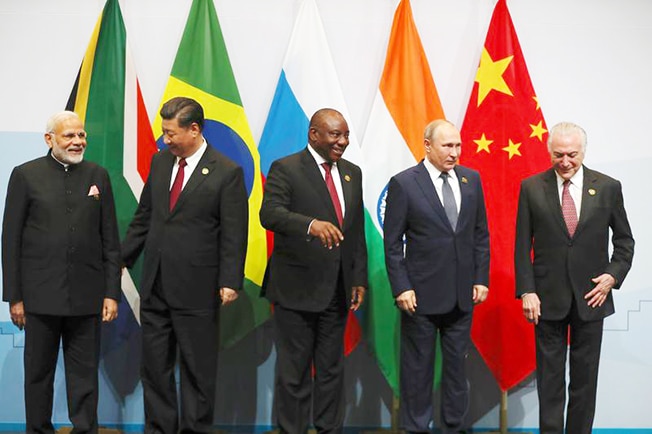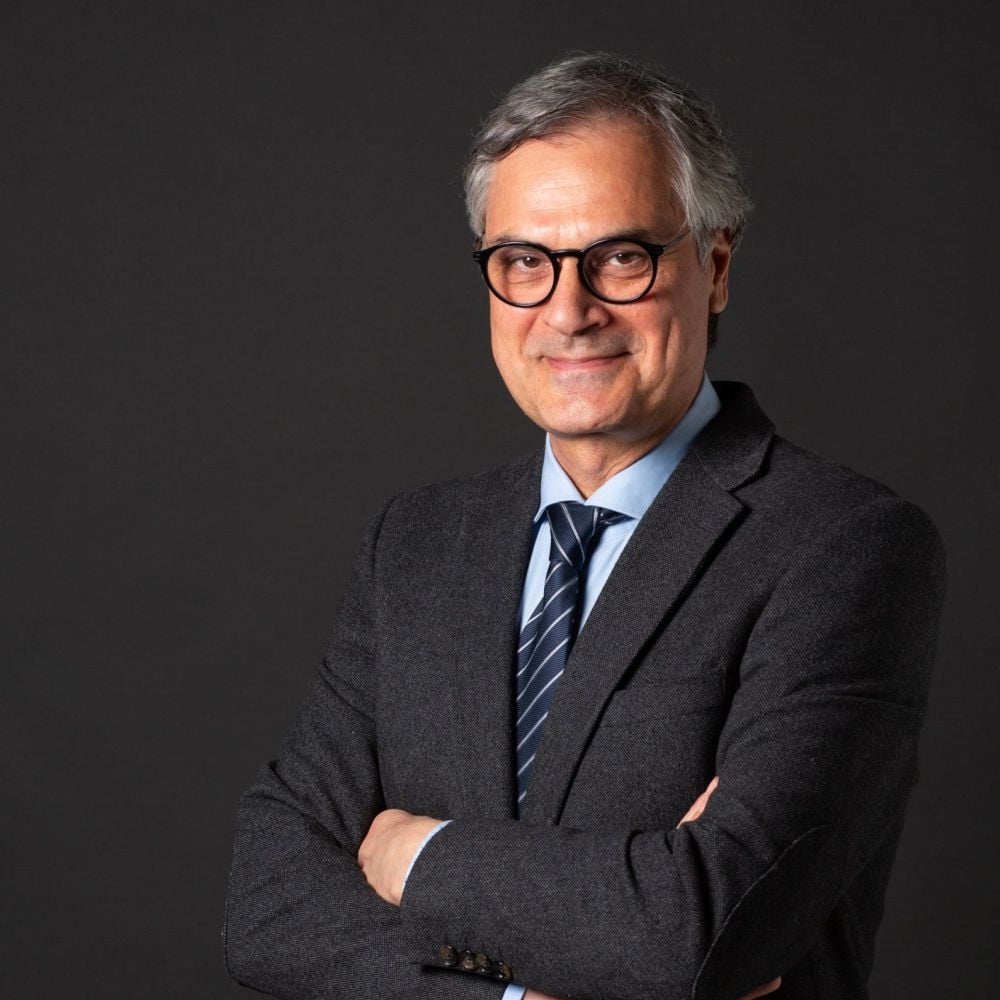The war in Ukraine and the sanctions by the United States and allies, designed to isolate Russia and to a lesser extent China, has caused a reaction from the BRICS nations – Brazil, Russia, India, China South Africa – and of the global south more generally. The weaponisation of the SWIFT system of international payments, by excluding Russian banks from it, and the freezing of Russia’s central bank reserves, in the wake of the war have brough about a sea change. China and Russia have developed separate payments systems. Increasingly the BRICS nations and associated countries have been reaching agreements for funding their bilateral trade outside of the dollar system. There is even talk of introducing a new gold-backed currency which will be discussed at the upcoming BRICS summit later this month.
Whilst it is absolutely conceivable, as the world fragments across trade, technology, and capital movements, that there will be a parallel reserve system, the process of getting there will take time, perhaps all of the remaining years of this decade.
First, what about the BRICS
The BRICS are a coalition of non-western countries working together as a counterweight to the dollar-dominated international system. Their main goals are to de-risk from the west and de-dollarise, by reducing their dependence on the dollar system. A third goal might be to introduce gold in their reserve relationships, as a stabilising factor.
Admittedly, there is a genuine concern that macroeconomic conditions in many leading western countries are deteriorating. There is also concern that the dollar-based international system is unstable and the source of economic imbalances and crisis generation. But truly, the main reasons behind de-dollarisation, are political, not simply economic.
The BRICS 2023 summit that will take place in South Africa during 22-24 August will discuss the expansion to BRICS+ admitting new members and will debate the adoption of a BRICS common currency standard, for global trade. This is different from the introduction of a new currency standard like the euro for instance. It will be an exchange currency standard and its main purpose at least in the beginning, will be to bypass the dollar in bilateral transactions.
China will be interested to see the new BRICS currency gaining exposure as a reserve currency, in the longer run, away from the dominance of the US dollar system. But this will take time given the complexities and intricacies of operating a reserve currency system.
Reserve currencies, their costs and benefits
Ultimately, we need to ask, what does it mean to own the global reserve currency. And specifically, what does it mean for the United States if the dollar is the global reserve currency.
If the reserve currency is the medium of transaction in bilateral trade between nations, demand for it is much higher and therefore its exchange value higher. The dollar as a reserve currency is likewise overvalued, and thus cuts both ways. You pay less for your imports, but you typically run a trade deficit because you are outpriced in foreign markets. Historically the United States has been running balance payments deficits. The sum of its international debits exceeded the sum of its international credits. This effectively comes as a tautology of the reserve currency status of the dollar.
If you own the global reserve currency you are in a sense forced to run balance of payments deficits to provide the world with the liquidity it needs. Balance of payments deficits are funded by issuing debt, printed or otherwise, which foreign countries are too eager to hold in their reserves.
The reserve status of the dollar has enormous economic and geopolitical leverage for the United States. And while the federal reserve has a domestic mandate, when it raises interest rates for domestic reasons, it has a global impact. The reach and power of the United States is really very significant because the international economy runs on dollars.
Not just funding of trade
The US dollar, like any currency, has three functions. It is a medium of exchange, a store of value, and a unit of account. The dollar as a medium of exchange in international affairs is about the settlement of trade. Bilateral trade transactions go through the dollar.
Store of value is about the share of dollar holdings in the international system. Bilateral surpluses are typically held in dollar assets. Thus, the medium of exchange function is about international trade, and store of value is about international finance.
The third function, that of unit of account, leads us to the issue of currency pricing. Global markets to a large extent are priced and traded in dollars, which is part of the reason why the dollar plays such a dominant role.
These three functions are distinct, and the dollar fulfils all three in a way that no other currency does. China has been trying to set up its own exchanges priced in its own currency, the renminbi. Countries trading with China, have reason to open trade channels and be able to use the renminbi, but they will be less willing to hold a substantial portion of their reserves in it.
Enter ‘bancor’
The BRICS summit is expected to announce the expansion of bilateral trade between members that will be transacted in their own national currencies outside of the dollar system but will not announce the creation of a new BRICS currency to be a reserve currency. There is no intention of creating a new currency like the euro. Instead, what will actually be discussed, is a settlement system, and the idea of the ‘bancor’ becomes relevant here.
Back in 1944, at the Bretton Woods conference that created the international monetary system, the United Kingdom proposed the introduction of ‘bancor’ as a supranational currency, to be used in international trade relationships. Conceptualised by John Maynard Keynes and Ernst Schumacher, the bancor in international trade was to be a unit of account, within a multilateral clearing system, the International Clearing Union, that would be created.
So, bancor was not going to be an international currency, and individuals could not hold it, but all international trade would be valued and cleared in it. Surplus countries would hold excess bancor assets and deficit countries would have corresponding bancor liabilities, but both sides would be required to take action to restore balanced trade.
Bancor apparently is the blueprint for the new exchange currency the BRICS will debate at the summit. Ideally, the BRICS bank will create a credit system where all the countries have credit to buy and sell with each other, to be settled in their own currency.
A bancor like exchange currency system will eventually evolve, out of a process that will include a number of stages. The first step for instance, would be to create a relatively stable system of exchange rates. Then the big step would be to try and create a relatively balanced trade among them to avoid any one country accumulating too much of the currency of the other. Imbalances should lead to corrective measures to remove them because a stable system eliminates persistent imbalances.
It is important to understand that the role of gold in the system would be residual. So, the idea is that gold only finances international imbalances, not general activity. In the Keynes-Schumacher original concept, gold could be converted to bancor, but not the other way around. That is, deficit countries could use their gold reserves to acquire bancors, but surplus countries will not be able to accumulate gold with their excess bancors.
Last word
China and the BRICS have been discussing the introduction of a new gold-backed currency but only as an exchange system, to facilitate increased trade between them and bypass the dollar system. This will not be a reserve currency. The BRICS for now cannot provide the financing the world needs for reserve currency. The war in Ukraine has turned out to be a catalyst for a new world order, but the transition to a parallel global reserve system, which will be a more monumental change, will be gradual and incremental.
Ioannis Tirkides is the Economics Research Manager at Bank of Cyprus and President of the Cyprus Economic Society. The views expressed are personal. The article is also published on the Blog of the Cyprus Economic Society (https://cypruseconomicsociety.org/blog/blog-posts/)







Click here to change your cookie preferences